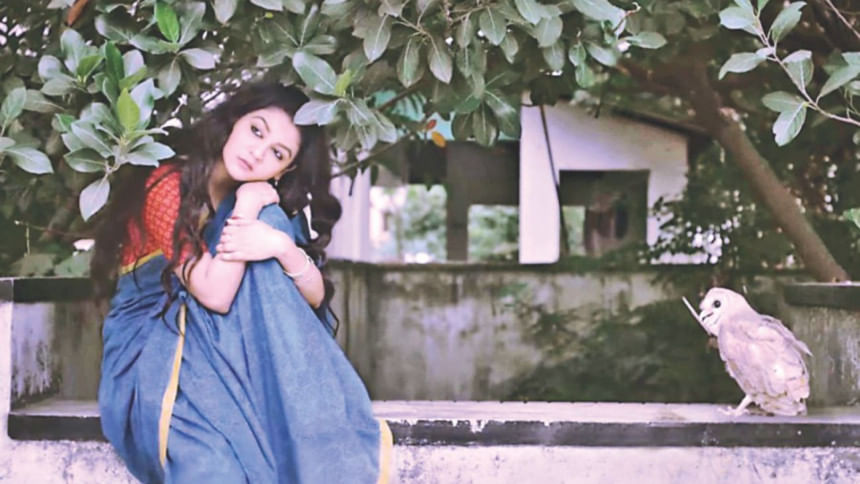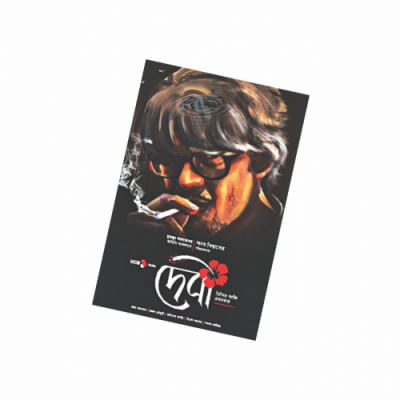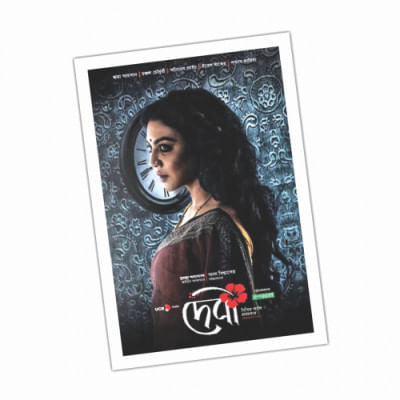Debi: A visual treat lacking a consistent narrative

When you step into a theatre to watch a film based on a very popular book, you take your seat with certain expectations. Based on Humayun Ahmed's popular novel of the same name, Debi is no exception.
I really wanted to see the story made into a television mini-series when I read the book 20 years ago. However, I didn't think that someone would actually invest money into making a paranormal film in Bangladesh. While reading the book, I imagined Debi in a two-storied building with a rooftop and a garden surrounded by trees somewhere in Dhanmondi or Eskaton. I imagined Bipasha Hayat as Ranu, Humayun Faridi as Misir Ali, and Afsana Mimi as Nilu. When Debi was announced, I was excited but apprehensive of how the film would turn out. Would I be heartbroken at the on-screen adaptation of my much-loved book? It was time to find out.
Dark and beautiful, Debi is—without giving away too much of the plot—a supernatural thriller. The story revolves around a possessed housewife named Ranu fighting demons of her traumatic past and craving sanity in life. She is introduced to Misir Ali through her husband Anis, who is trying to help his wife get better. An aged professor, Misir Ali attempts to understand Ranu's psychology and find a logical explanation for her extrasensory powers.
With haunting visuals and sound effects, Debi manages to intrigue the audience and sets the tone of the film right from its very first scene. Halfway through it, however, we realise that this film leaves nothing to the imagination and that the writing is all over the place. There are several scenes which felt repetitive and drawn out. But I can't help but mention one scene in which Ranu (played by Jaya Ahsan) sits on the rooftop next to an owl. It is scenes like these—created by the gorgeous cinematography and top-notch performances of the lead actors—which hold the audience's attention.

Another major drawback is the climax. The poor CGI and execution of this scene (with Shabnam Faria and Iresh Zaker) seemed to belong to a different movie altogether. A masala movie, to be specific. They should have kept the book's ending untouched for the film adaptation, as that was more believable and suspenseful, and not unrealistic or “filmy”.
Debutant director Anam Biswas seems like a promising talent and I'm waiting for his next venture with much intent. Lead actress Jaya Ahsan, also the film's producer, spares no effort in showcasing her talent. She is a treat to watch; her honesty and purpose towards her job are admirable. It's hard to imagine anyone else pulling off Ranu's character with such ease and grace.
Chanchal Chowdhury as Misir Ali gets into the skin of his character effortlessly. He is an actor who is great at subtly downplaying the dramatic moments. His dialogue delivery even reminded me of Shahiduzzaman Selim. I only wish that he had been in better physical shape like Misir Ali's character in the books, described as a tall, thin individual who rarely ate. “When will we see our actors put in work in not just acting but also in looking the part?” it made me wonder.
Animesh Aich, meanwhile, portrayed Anis with utmost honesty and his chemistry with Jaya was convincing. Shabnam Faria tried to give her best but did not quite make an impact. As for Iresh Zaker, I'm not sure if he was the right choice for the role of Ahmed Sabet. He is without a doubt a fine actor, but I envisaged someone more like Jisshu Sengupta in that role.

The film's cinematography, lighting, sound design, and costume design all deserve plaudits. These technical attributes are well above average and in some scenes, even excellent. It's admirable that despite “C for Cinema” being Jaya Ahsan's own production company, she didn't make the film all about herself. It is something we rarely witness in our country when an actor becomes a producer. In Debi, all the characters get ample opportunity to shine. Nonetheless, the film will definitely be remembered for Jaya Ahsan's nuanced performance in a role she does justice to.
Debi is an unevenly written film that could have benefitted from the intervention of a more assertive editor. The screenplay is the main culprit. Adopting the story into a present day setting didn't add any value to the film. They should have kept the original timeline of the story in the 1980s. The film is creative and dark and a visual treat, but it lacks a consistent narrative. In the end, it felt as if the makers tried way too hard. The overall impression is of an extended blur that leaves you dazed but not really impressed.
It does, however, manage to elevate the genre of horror in Bangladeshi film. It's an “average” film; but if you compare it with other films that are being made at this moment, it is definitely worth a watch.
Rajib Rahman is a writer. His debut work is a short story called "Night before Dawn".

 For all latest news, follow The Daily Star's Google News channel.
For all latest news, follow The Daily Star's Google News channel. 



Comments